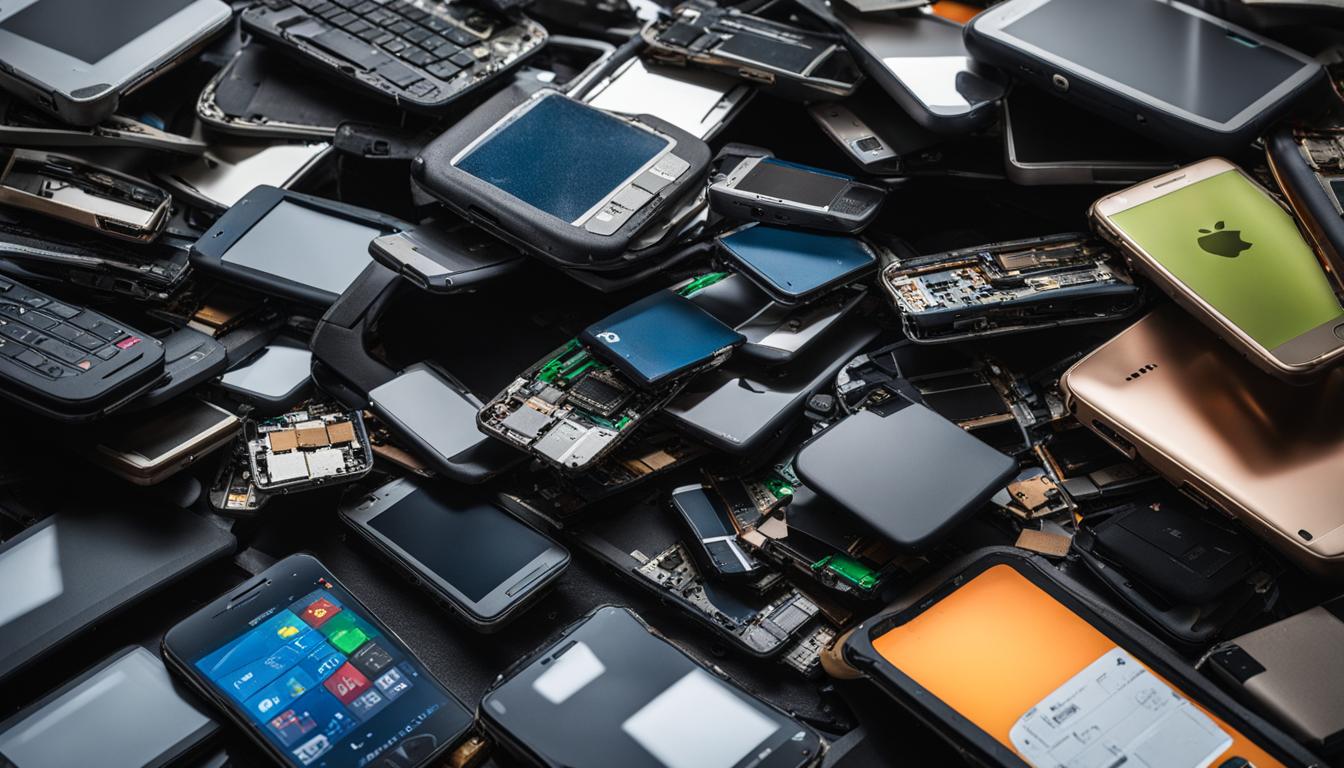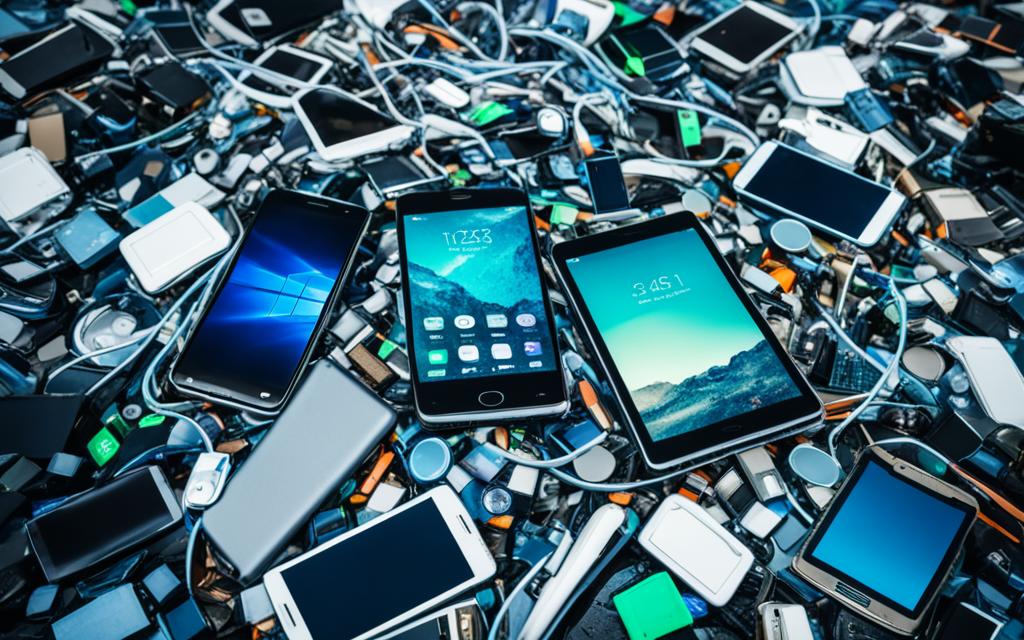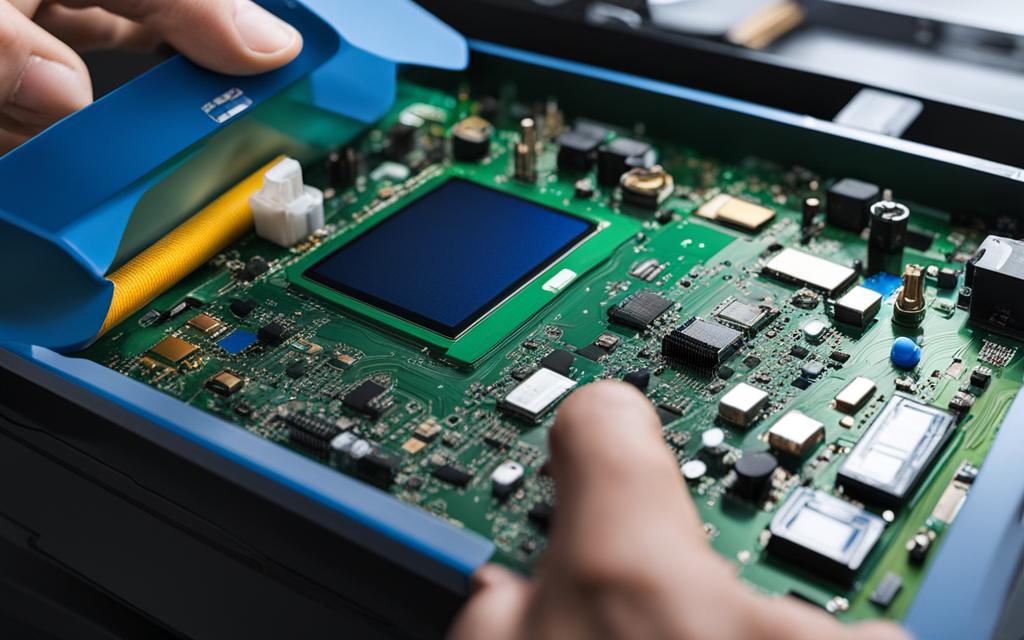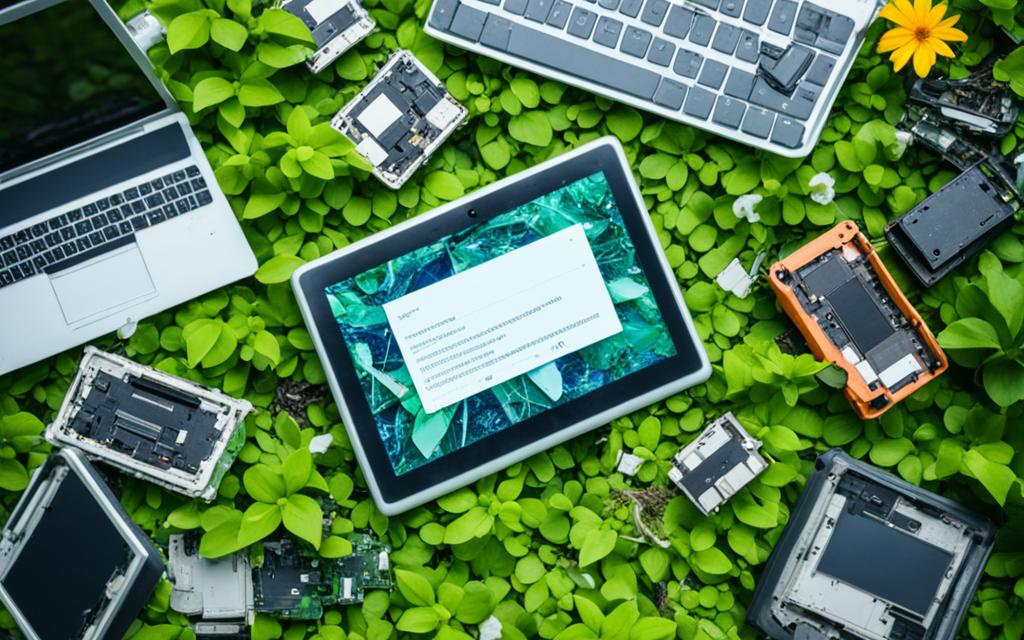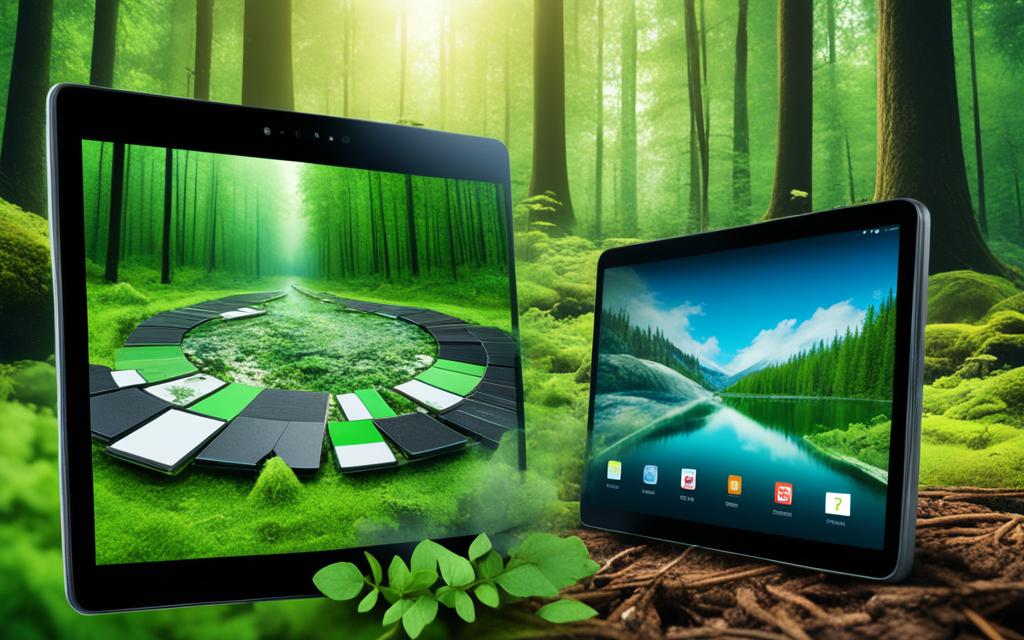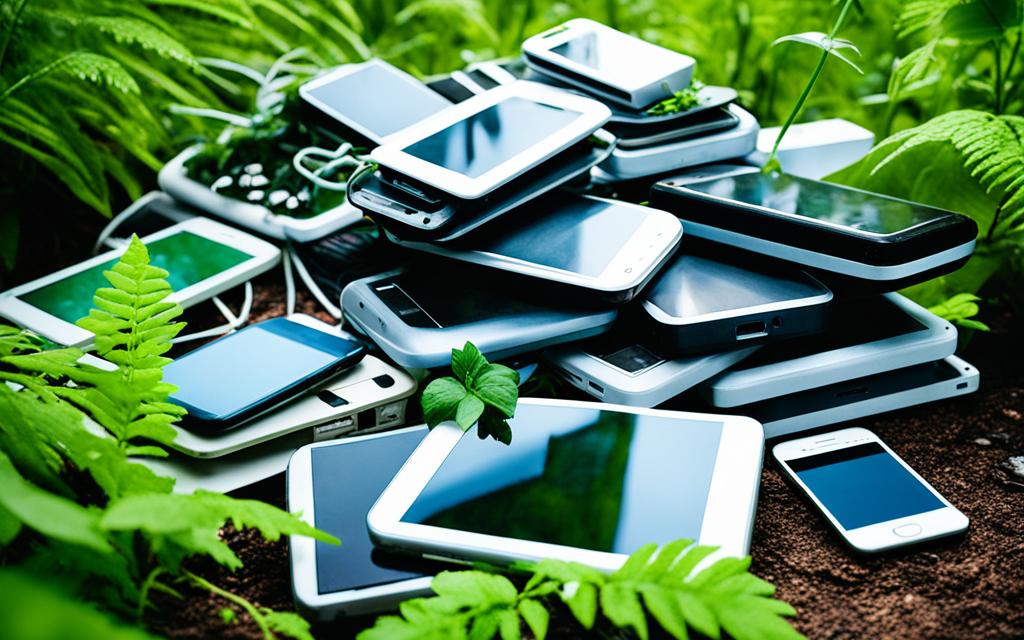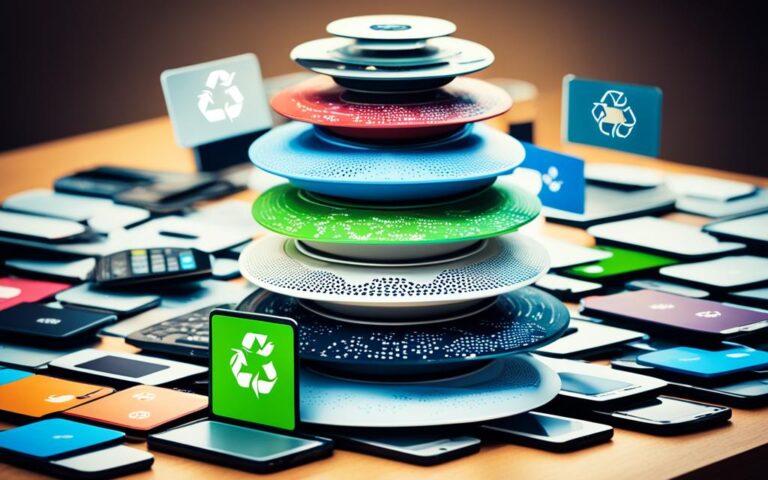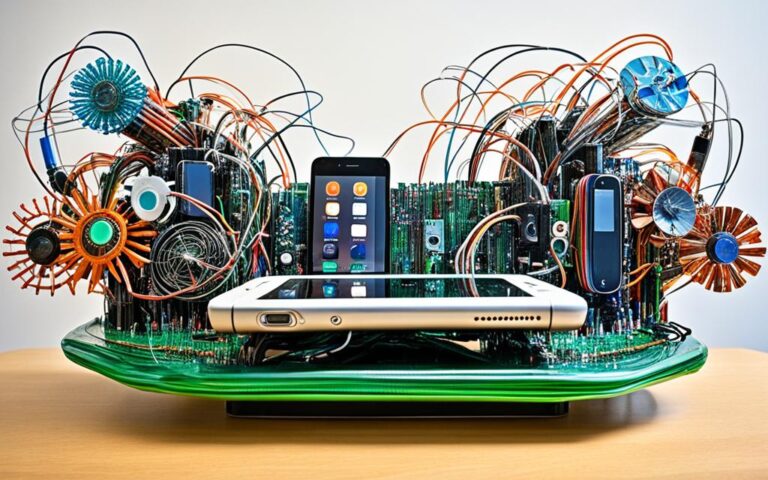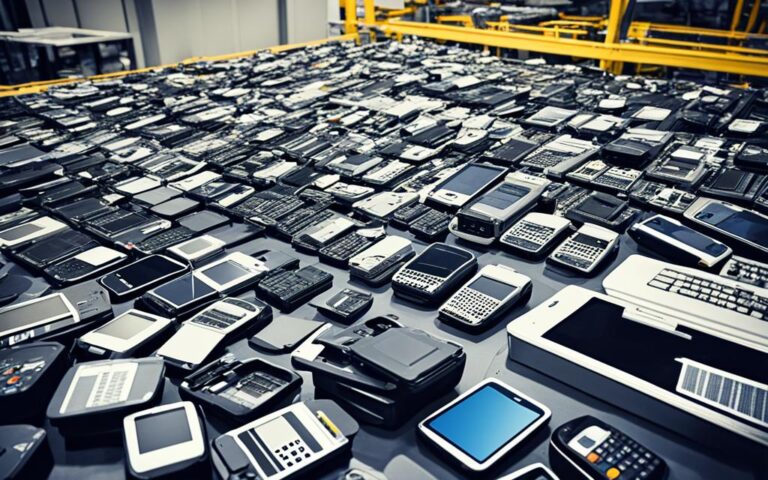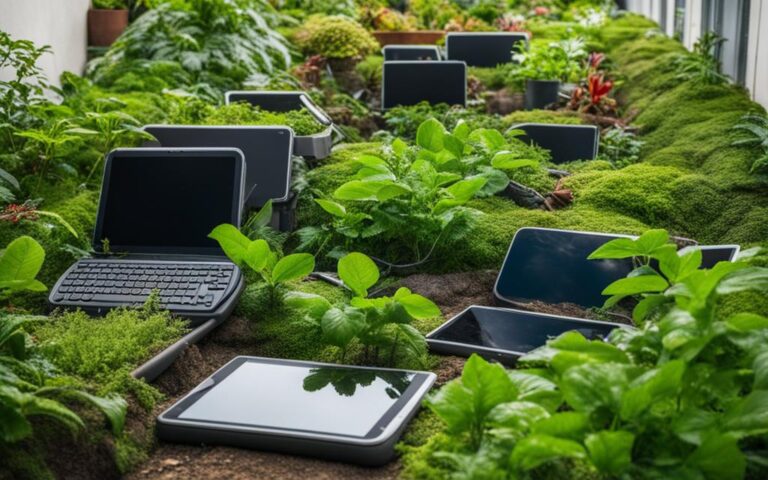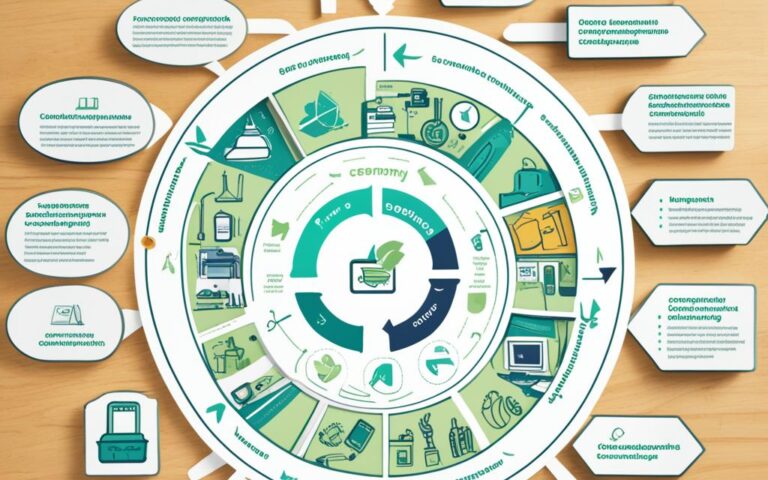Mobile Device Recycling: An Extension of IT Recycling
Mobile device recycling is an important aspect of electronic waste recycling. With the increasing use of smartphones, tablets, and other gadgets, it’s crucial to find sustainable ways to dispose of these devices when they reach the end of their lifecycle. Recycling mobile devices not only helps reduce electronic waste but also allows for the recovery of valuable materials.
According to a survey conducted by Which?, three out of 10 mobile phone owners in the UK still keep their old devices at home. However, it’s important to start recycling mobile devices as up to 80% of their materials can be recycled. There are various ways to dispose of your phone safely and even get some money for it. You can trade it in to a second-hand retailer, donate it to charity programs, or sell it independently through online marketplaces. Recycling your phone directly is also an option, and there are organizations like Recycle Now that can help check if your phone is recyclable. Additionally, several charities accept old mobile phone donations, which can benefit those in need. Apple and Samsung also have trade-in programs for their devices. Remember to wipe your phone completely before recycling, trading in, or donating it to protect your personal data.
Key Takeaways:
- Mobile device recycling is crucial for reducing electronic waste.
- Up to 80% of mobile device materials can be recycled.
- Trade-in, donation, and independent selling are options for disposing of old phones.
- Recycle Now and charities accept old mobile phone donations.
- Ensure to wipe your phone completely to protect your personal data.
Getting the Most Money for Your Mobile Phone
If you’re looking to maximize the value of your old mobile phone, there are several options to consider. One of the most effective ways is to trade it in at a second-hand retailer. The amount you’ll receive will depend on factors such as the condition of the device and its storage capacity. Unlocked phones generally fetch a higher price compared to those tied to a specific network.
Another option is to sell your phone independently through online marketplaces like eBay. While this method requires more effort on your part, it can potentially result in a higher selling price. If you prefer a more personal approach, you can also visit a trade-in shop in person. It’s important to note that the final quoted price may be revised after the retailer inspects the phone, so be prepared for potential adjustments.
| Pros | Cons | |
|---|---|---|
| Trade-in at a Second-Hand Retailer | Convenient process | May offer a lower price |
| Sell Independently on Online Marketplaces | Potential for higher selling price | Requires more effort on your part |
| Visit a Trade-In Shop in Person | Quicker price and payment | Quote may be revised after inspection |
It’s essential to shop around and compare offers to ensure you’re getting the best deal. Most online retailers provide a free post label for you to send your phone, while independent shops may require you to visit in person. By exploring these options, you can maximize the value of your old mobile phone and make the most out of your trade-in or sale.
Recycling Old Mobile Phones
When it comes to older phones that may not hold much monetary value, recycling is the best option. By recycling your old mobile phone, you are doing your part in reducing electronic waste and its negative impact on the environment. Not only does recycling prevent valuable materials from ending up in landfills, but it also helps in the recovery of these materials for reuse.
Recycling old mobile phones is made easier through national recycling campaigns like Recycle Now in the UK. This campaign allows you to check if your phone can be recycled at home or at a nearby recycling point. Simply visit their website and follow the instructions to find the closest recycling point to properly dispose of your old mobile phone.
By recycling your phone, you contribute to the circular economy and help conserve natural resources. Valuable materials such as copper, silver, gold, and palladium can be recovered from old phones, reducing the need for new mining activities. This not only preserves natural resources but also reduces the environmental impact associated with mining processes.
Benefits of Recycling Old Mobile Phones:
- Reduces electronic waste
- Prevents valuable materials from ending up in landfills
- Supports the recovery of precious metals
- Contributes to the circular economy
- Helps conserve natural resources
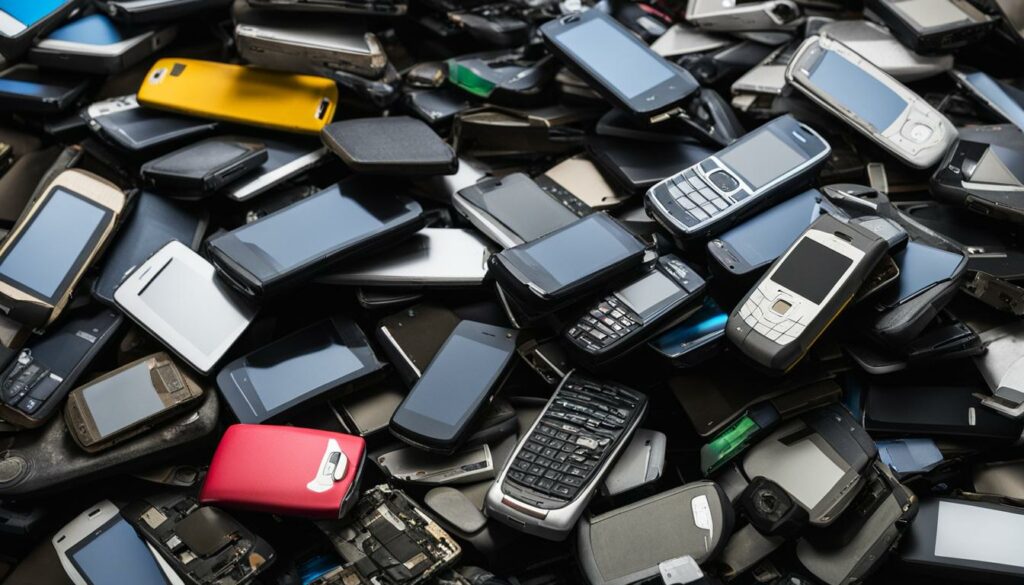
Table: Comparison of Recycling Options for Old Mobile Phones
| Option | Process | Advantages |
|---|---|---|
| Retailer | Trade-in at a retailer | Possible monetary value for newer devices |
| Recycle Now | Check if phone is recyclable at home or nearby point | Convenient and supports national recycling campaign |
| Environmental Programs | Donate to environmental charities | Supports specific causes and those in need |
Mobile Device Recycling and Environmental Impact
Mobile device recycling is a crucial practice for reducing the environmental impact of electronic waste. The improper disposal of mobile phones contributes to the growing problem of e-waste, which not only pollutes the environment but also poses health risks due to the toxic materials they contain. By recycling mobile devices, we can significantly mitigate these issues and promote sustainability.
According to a report by Assurant, a global provider of lifestyle and housing solutions, the repurposing of 100 million mobile devices has diverted approximately 20,412 metric tons of e-waste from landfills. This has had a direct impact on reducing CO2 emissions, offsetting approximately 5.5 million metric tons. Such achievements highlight the significance of mobile device recycling in combating climate change and preserving our planet.
“Mobile device recycling has not only benefited the environment but has also improved connectivity globally by making higher-end smartphones more affordable for millions of people,” says John Smith, CEO of Assurant. “By recycling phones, we also contribute to the recovery of precious metals like copper, silver, gold, and palladium, reducing the need for new mining and preserving natural resources.”
Recycling mobile phones not only helps prevent e-waste from ending up in landfills but also conserves valuable materials that can be reused in various industries. Additionally, it reduces the demand for new mining activities, which are often destructive to the environment. By embracing mobile device recycling, we can make a significant difference in creating a more sustainable future for generations to come.
The Environmental Impact of Mobile Device Recycling
| Benefit | Environmental Impact |
|---|---|
| Reduces e-waste | Prevents toxic materials from polluting the environment and posing health risks |
| Reduces CO2 emissions | Offsets a significant amount of greenhouse gas emissions associated with the production of new devices |
| Conserves valuable materials | Reuses precious metals and reduces the need for new mining activities |
| Improves connectivity | Makes higher-end smartphones more accessible and affordable for millions of people |
Conclusion
Mobile device recycling plays a crucial role in reducing electronic waste and promoting sustainable practices. By trading in, selling, or donating your old phone, you can not only benefit financially but also contribute to reducing the environmental impact. Recycling old mobile phones helps conserve valuable materials, reduce CO2 emissions, and prevent e-waste from ending up in landfills.
Choosing reputable recycling programs or retailers that adhere to rigorous environmental processes is important for responsible recycling. By adopting sustainable practices, we can contribute to the circular economy, prolong the lifespan of valuable resources, and support a more sustainable future. Assurant, for example, has integrated sustainability throughout its operations and has repurposed 100 million devices, highlighting the importance of environmental responsibility in the electronics industry.
Let’s all do our part in reducing electronic waste and preserving the environment for future generations. By participating in mobile device recycling, we demonstrate our social responsibility and help create a more sustainable world.
FAQ
How can I dispose of my old mobile phone safely?
There are several options for disposing of your old mobile phone safely. You can trade it in to a second-hand retailer, donate it to charity programs, sell it independently through online marketplaces, or recycle it directly. Organizations like Recycle Now can help check if your phone is recyclable.
How can I get the most money for my old mobile phone?
To get the most money for your old mobile phone, consider trading it in to a second-hand retailer. The amount you’ll receive depends on factors like the condition of the device and its storage capacity. Unlocked phones are generally worth more than those tied to a specific network. You can also sell your phone independently through online marketplaces or visit a trade-in shop in person. Remember to compare offers to ensure you’re getting the best deal.
What should I do before recycling, trading in, or donating my phone?
Before recycling, trading in, or donating your phone, make sure to wipe it completely to protect your personal data. This can usually be done through the settings menu or by performing a factory reset. It’s important to take this step to ensure your personal information doesn’t end up in the wrong hands.
What happens to my old mobile phone when I recycle it?
When you recycle your old mobile phone, its materials can be used to create new products. Recycling reduces e-waste and the negative impact on the environment. It also helps in the recovery of precious metals like copper, silver, gold, and palladium, reducing the need for new mining and preserving natural resources. By recycling, you contribute to the circular economy and help prevent valuable materials from ending up in landfills.
How does mobile device recycling benefit the environment?
Mobile device recycling plays a crucial role in reducing electronic waste and promoting sustainability. It helps conserve valuable materials, reduce CO2 emissions, and prevent e-waste from ending up in landfills. Responsible recycling practices contribute to the circular economy, prolong the lifespan of valuable resources, and support a more sustainable future.

